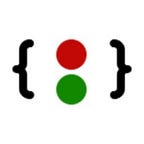Blockchain Concepts & Skills That Aspiring Web3 Developers Should Learn.
There’s new tech on the block and everyone wants a piece of it — Oh wait!, it actually goes like this — There’s a new block in tech and everyone wants to become a part of the chain :)
TL;DR: Everyone in tech wants to be an intellectual part of the discussions regarding blockchain. Is blockchain the future? — What makes it special?. Blockchain is a decentralized system that nullifies replication of digital assets. Blockchain developers create smart contracts, DApps etc., to make web3 a reality. Blockchains are more than just cryptos and NFTs.
In this blog, we’ll be looking at the following points:
- What is blockchain?
- What does a blockchain developer do?
- Smart contracts.
- Blockchain protocols.
- DApps.
- DAOs.
- SIX activities that make a blockchain developer.
Here’s a pre-requisite on full-stack development for Blockchain & Web3 Devs.
What is blockchain?
Blockchain, also called Distributed Ledger Technology (DLT), is a decentralized system that makes the history of any digital asset immutable and transparent through cryptographic hashing.
Here’s a scenario in easier words to understand the concepts of blockchain technology.
Suppose you create a document on MS word and you want to share with other people. In doing so, multiple copies of the document are created on different computers. The original document on your system will be the central copy, whilst other documents are merely copies. This is an example of a centralized system.
Now imagine the same, but with Google docs. You create a doc and when you share it with others, they will be able to access the same document without having to make more copies. This is possible because of the decentralized nature of Google docs. It’s distributed in real-time and all modifications are completely transparent.
Developers who ideate, design and build such blockchain systems are called blockchain developers. To become a blockchain developer, one should be naturally knowledgeable with distributed computing systems.
What does a blockchain developer do?
A blockchain developer should be able to do some of the following tasks:
- Smart contracts development.
- Taking up Non-fungible Token projects.
- Crafting network architecture.
- Designing blockchain protocols.
- Designing consensus protocols and security patterns.
- Developing interactive front-end designs for DApps.
These are some of the primary responsibilities a blockchain developer might have to take on amongst other things.
Want to become a senior developer? — Here’s a comprehensive set of system design interview concepts & questions.
What are smart contracts?
Smart contracts are terms of agreement systems. They are virtually similar to traditional contracts, except a smart contract’s terms are implemented in code on a blockchain system.
Smart contracts enable developers to build apps that leverage security, reliability, and accessibility of blockchain with peer-to-peer functionalities.
What are blockchain protocols?
Protocols are core layers for code that decide how something should function. They form the foundation program for the software in certain networks. Imagine protocols to be a set of instructions based on which the entities within machines communicate and transfer information.
Blockchain protocols fall under the category of fat protocols unlike internet protocols that are thin.
For instance, cryptocurrency protocols have few applications running on them while establishing the value whereas internet allows multiple applications.
Some examples of blockchain protocols
Bitcoin, Ethereum, Ripple, Hyperledger, open chain, corda, Symbiont distributed ledger.
What are DApps?
DApps are decentralized applications that run on top of blockchain networks. DApps come with a diverse set of use cases, such as gaming, finance, social media, and more.
What sets DApps apart from the regular apps is that the backend of DApps is powered by smart contracts on distributed networks.
They primarily survive on peer-to-peer networks, and possess certain flexible qualities, such as:
- DApps are completely Open source — Public will have open access to the source code, which makes it possible for the code to be viewed, copied, modified by anyone due to the absence of singular authority.
- DApps are cryptographically secured — All data and information will be stored on blockchain, handled by multiple nodes, which is cryptographically secured ensuring data safety.
- DApps access is tokenized in nature — DApps can be accessed using a cryptographic token.
Another major concept blockchain and web3 developers need to know & learn about are DAOs.
What are DAOs?
DAOs stand for Decentralized Autonomous Organizations.
DAOs are internet-native organizations jointly owned and managed by community members.
They function without any central leadership and decisions are made through voting.
Due to an absence of a hierarchical top-to-bottom managements, DAOs present a scope of purposeful activities.
However, this information is just the tip of the iceberg and there’s more to explore.
Become a blockchain developer by doing these SIX things
- Obtain great understanding of blockchain technology, concerning protocols & functions.
- Become proficient at high level programming, since you need to be well-versed in web2 coding to excel at building solutions in blockchain.
- Take a deep dive into the knowledge repositories of cryptography & security systems
- Learn peer-to-peer networking & distributed systems.
- Acquire high fluency in creating smart contracts.
- Build strong competency for the concepts of DS & Algorithms.
To get started on building solutions using blockchain technology, it is imperative for developers to have a fundamentally solid understanding of web2 coding languages. They form the base of your technical competency for web3.
And the most optimal way to learning technical skills and polishing them is by practice. The Codejudge developer platform enables developers of all levels to strengthen their technical skills through real-world micro-projects and coding assessments.
And the best part? — If you can prove your skills, you will be contacted regarding jobs at high-growth & big tech companies.
